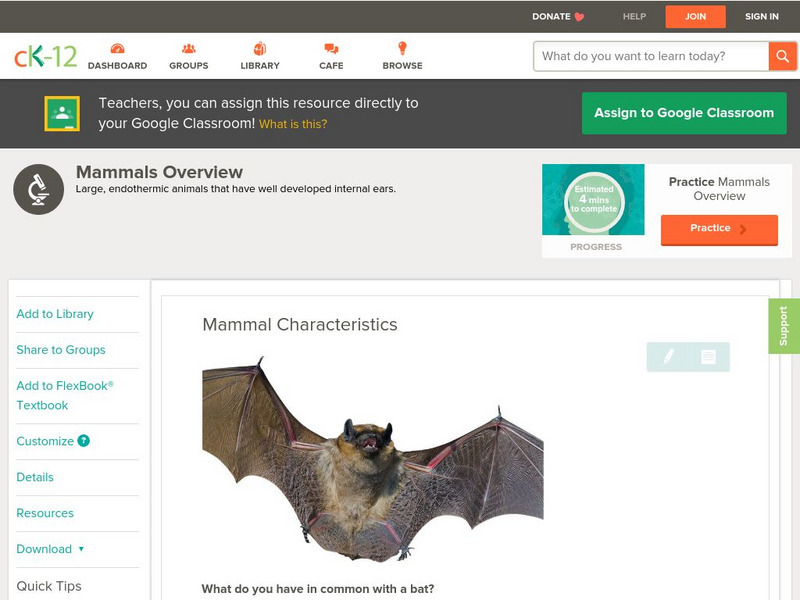Hi, what do you want to do?
Curated OER
Impact of Exotic Species on Lake Ecology
Students examine the effect of foreign species on various habitats. In groups, they identify the population dynamics of the zebra mussel. They calculate averages and graph data from Seneca Lake in New York. They develop hypothesis...
Curated OER
The Environments of Big Sur -- Which Do We Protect?
Students investigate the geological, climatic, and biological features of Big Sur. They watch a video, conduct Internet research, and create a script and images in the form of an outline in a simulation of an environmental group.
Curated OER
Skates
Students gain understanding of structure, characteristics, and basic needs of living things and their role in world, identify parts of skate, observe details of skate's body and skate egg case, and identify unique characteristics of skates.
NOAA
Deep-Sea Ecosystems – Cool Corals
Young oceanographers research deep sea corals that thrive on chemosynthesis. The instructional activity focuses on the biology of the animal, preferred habitat, associations, and interactions.
Curated OER
Save a Reef!
Design a public information campaign to improve understanding of the coral reef crisis. Read about and discuss the biology and threats to the coral reef. The class creates a public information program about the problems facing the coral...
Curated OER
Sensational Seaweed
Young scholars compare kelp and land plants. In this sea plant lesson, students look at the role of algae in aquatic environments. They research the properties of kelp and explore seaweed.
Curated OER
Plant Explorers
Students investigate how plants take in water, nutrients, and light. They create artwork showing how plants survive in different environments.
Aquarium of the Pacific
Ecosystem Comparison
Fifth graders examine plants and animals in two ecosystems and compare them. In this ecosystem survival lesson, 5th graders compare and contrast a coral reef and kelp forest ecosystem. Students investigate the abiotic and biotic...
Curated OER
Going for the Green
Students use satellite imagery to obtain information on chlorophyll concentration at selected locations in the Earth's oceans.Students explain the relationship between chlorophyll concentration and primary production.Studen
Curated OER
Water Quality Monitoring
Students comprehend the four parameters of water quality. They perform tests for salinity, dissolved oxygen, pH and clarity or turbidity. Students comprehend why scientists and environmental managers monitor water uality and aquatic...
Curated OER
Save A Reef!
Students identify the major threats to coral reefs and the ways that they benefit from humans. In this coral reef conservation lesson students create a public education program on coral reefs.
Curated OER
Skates
Young scholars identify the unique parts of the body of skates and their egg cases.
Curated OER
Amphipods
Students identify organisms that live at the bottom of the body of water. In this biology lesson, students evaluate the effects of pollution to amphipods population. They examine collected data and create a bar graph comparing them.
Curated OER
Mountains in the Sea Exploration No Escape
Learners study data to hypothesis about the influence of a water circulation cell on the retention of benthic invertebrate larvae in the area of a seamount. They investigate the positives and negatives of larvae retention in this series...
Curated OER
Bermuda: Search for Deep Water Caves 2009: Out of Darkness
Students analyze the three models on the origin of troglobitic fauna. In this life science lesson, students also consider how the Zonation model explains the fauna's origin. They also use the Internet to research solutional and volcanic...
CK-12 Foundation
Ck 12: Life Science: Mammal Characteristics
[Free Registration/Login may be required to access all resource tools.] What is a mammal? They walk, run, swim, and fly. They live in the ocean, fly in the sky, walk on the prairies, and run in the savanna. There is a tremendous amount...




















